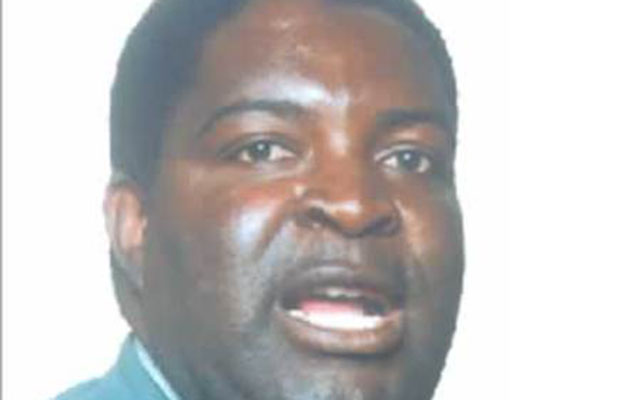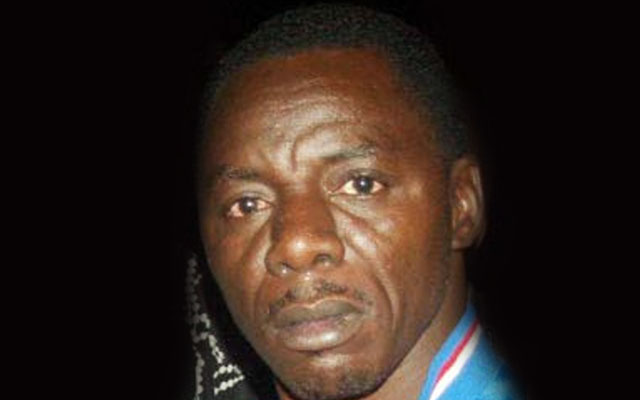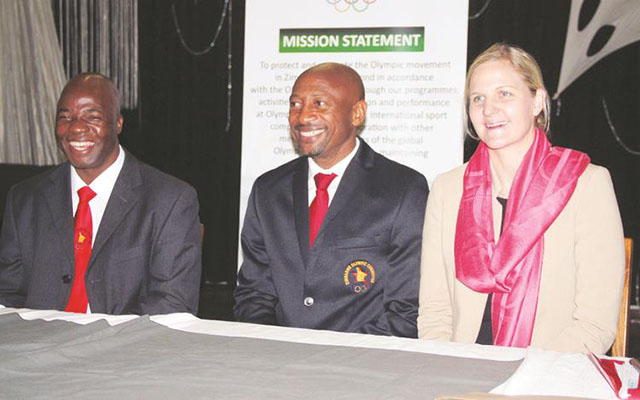National Youth Service: 16 years down the line


The late Cde Border Gezi
Reason Wafawarova on Monday
IT is now 16 years since the National Youth Service (NYS) programme was resuscitated in 2001, and 13 years after I left it.
I first came to know about the NYS initiative in February 2001, when I had a chance invitation to a strategic planning meeting that comprised mainly the security forces, but hosted by the then Ministry of Youth Development, Gender and Employment Creation under the stewardship of the late Border Gezi.
I have written in the past giving details of who invited me to that meeting and how he himself happened to be in the meeting.
Essentially, here was a known student leader invited as a stakeholder in youth development affairs and him knowing my involvement with youth work at the time, suggested to the organisers that it would be a good idea to have me come along and join the discussions.
He was given the clear and he called me on my mobile: that Telecel red handset thing that came with the line back in 1999.
Mango, we called it at the time. I happened to be loitering in the CBD at the time, literally in the criminal sense of the word, when only people with a purpose were allowed to walk on First Street. That is a very long time ago.
Anyway, last time I decided to name the colleague who invited me to this meeting it adversely impacted on his current interests, including his job and his welfare.
Fortunately, nothing too serious happened to him in the aftermath, but I have realised that the NYS programme has fallen to immense sensationalisation, politicisation, propaganda and vilification; so much that those associated with the programme in any way have got to be careful.
This piece is about interrogating the reasons behind the bad image associated with the programme today and I hope dear reader you will bear with me as I try to give my personal view on the matter.
Let me start by saying I have been through a high profile defamation case and another immigration related one here in Australia because of the decision I took that fateful day when I answered my mobile phone and decided to join an ongoing meeting that was taking place at the fifth floor of the Zanu-PF Headquarters.
At the time the party was leasing out floor two to six to the Ministry of Youth Development, Gender and Employment Creation. I understand this was the main regular source of income for operations at the building at the time. I have also had many failed attempts to get me deported from Australia because of what has been termed “a horrible past” by those after my demise.
It’s a stride I have had to walk.
I believe some of the people involved may have actually acted in genuine pursuit of justice, but sadly at the instigation of preposterous individuals whose motivation is to silence my voice in the vocation of political commentary and opinion shaping — a direction I chose to pursue since August 2006.
Brigadier Agrippa “Dragon” Mutambara was first assigned to pursue the idea of a national service programme in the early nineties, but his efforts and those of his colleagues were stalled by lack of political will and resources, although the team had sourced training materials that we later used in 2001, 10 years later.
So the concept of the National Youth Service was not exactly the brainchild of Border Gezi as often is wrongly asserted in the media today. It’s a phenomenon globally practised in many countries, including Israel, Botswana, Kenya, Ghana, Nigeria, Switzerland, the USA and many other countries.
Border Gezi just happened to double up as the Youth Minister and the National Commissar for Zanu-PF at the time and that did not give the NYS initiative a very good image in the eyes of the opposition, coupled by the fact that he was deputised by Shuvai Mahofa; seen in opposition circles as a zero technocrat and 100 percent political activist. Anyway space is limiting, so I will finish how I came into the fold. In a nutshell I talked impressively in the said meeting and the Youth Department director took a decision that I was to be co-opted into the initial planning stage of setting up the programme.
Before long, I was playing a key role in the drafting of the concept paper.
Essentially the paper was centred on four pillars; patriotism, entrepreneurship, unity and peace. The idea was how best to instil these values in the youth through the proposed programme.
In early April 2001, an all stakeholder meeting was held at the Great Zimbabwe Inn, where every single ministry was represented, as well as war veterans, youth organisations, student unions, church leaders, and many others.
The stakeholder meeting went on well, after which we had trips to Israel, Botswana, Ghana and Switzerland for feasibility studies.
When the late Brigadier Boniface Hurungudo pushed that the programme had to start by September 2001, he had very little support from the minister and the ministry’s top management, in whose meetings he did not sit.
He had to rely on support from the Defence Ministry and other stakeholders to push for that start. There was no establishment from the Public Service Commission to employ staff, apart from the position of deputy director, held at the time by Brig Hurungudo himself.
Myself and two other colleagues came in as casuals employed directly by the ministry and that was the birth of the parallel structures that expanded up to that point where the ministry had ward officers outside the PSC’s establishment.
But what led to this polarisation and vilification of the NYS? We worked hard to renovate the defunct 2 Brigade Barracks near Mount Darwin and that gave birth to the opening of the Border Gezi National Youth Service Centre on September 8, 2001. The naming was in honour of Minister Gezi, who had tragically died on April 28 the same year.
This was the debut NYS centre and seven more were to be opened by 2004, the time I left the ministry. Contrary to the widely held belief, the programme’s official name is not Border Gezi and there was only that one centre by that name. The rest had names like Dadaya, Mushagashe, Vumba, Guyu, Kamativi and so on.
I will probably continue on more detail in later writings, but from the onset, the NYS was politicised by both the ruling party and the opposition.
We had to repeatedly remind the Zanu-PF Youth League that we were running a Government national program and we did not need their input in any way.
I took the initiative to invite the likes of Nelson Chamisa, Evelyn Masaiti and Thokozani Khupe to be part of the process and they did come. The idea was to ensure that partisan instructors and other staff would appreciate that they were working for a national programme.
We had a fairly good combination of Political Science graduates from UZ and well researched war veterans to take up national orientation classes and we also had resource persons like the late Dr Vimbai Chivaura, Prof Claude Mararike and Prof Tafataona Mohoso, among others.
The director of Youth Development got assaulted in 2002 because we had insisted that it would be a dismissible offence for anyone to chant a Zanu-PF slogan within the premises of the training centre, or that of any other party.
We had the first group of just under 1000 students graduating in December 2001. The Zimbabwe Prison Services absorbed 600 of them, while the rest went to the ZNA, GMB, ZRP, ZUPCO and other such places.
No sooner had we deployed these young professionals than we started reading that all youths in places run by the Zanu-PF Youth League were now referred to as Green Bombers, a derogatory term coined specifically to vilify NYS graduates at the time.
To make it worse, those running the bases were not keen to have the reports corrected, riding high on the NYS tag themselves, even storming our offices demanding uniforms.
The confusion over uniforms came after Minister Manyika rocked up for the Passout Parade in full NYS gear.
Everyone then seemed to think the uniforms were for free. Of course we refused to give any uniforms to non-NYS members, and Absolom Sikhosana was very supportive on our side.
We organised an inter-party Parliamentary Committee visit to the NYS centres in 2003 and the distinction between Zanu-PF Youth Brigades and NYS graduates was made very clear.
So we had on the one hand the private media hyping the Green Bomber propaganda on the NYS and on the other a clique of partisan officials within the NYS itself highly politicising what was supposed to be a noble national cause.
My passion for the programme began to fade in late 2003 just before an attempted ambush at Dadaya. One of my founding colleagues left in early 2004 and another had left earlier to work with the GMB. He later became the CEO there.
I had an opportunity to come to Australia in January 2004, but I turned it down at the time because I felt this burden to finish what we had started for the youth. By June the same year so many things were getting worse for the NYS and I decided to give the divergently viewed latecomers a chance to pursue their own ideas in regards to the programme. That is when I left the country.
These newbies included people like Permanent Secretary Washington Mbizvo, Minister Ambrose Mutinhiri and others like the then Deputy Minister Saviour Kasukuwere.
Without blindingly dismissing the notion of political violence at the time, I have always felt that the blanket brush by which NYS graduate are painted is unfair, unfounded, untrue and most certainly unfortunate for the country.
People have come to the point where every politically violent person must be a graduate of the NYS program and that is simply not acceptable.
From 2002 to the time I left in 2004, I was on radio every Wednesday and on national TV every Monday 6am explaining to viewers and listeners what the NYS programme was all about, and distancing the programme from some of these allegations the private media was writing about.
We had among NYS graduates errant and overzealous political activists as well, and that cannot be denied.
That was not ministry policy. I was labelled MDC many times for that and having Learnmore Jongwe’s wedding invitation card found on my office desk earlier on did not make matters any better.
I hope a day will come when what we started will be developed into the noble idea we always meant the programme to be and I hope that day will come during my lifetime.
Zimbabwe we are one and together we will overcome. It is homeland or death!
Reason Wafawarova is a political writer based in SYDNEY, Australia.










Comments